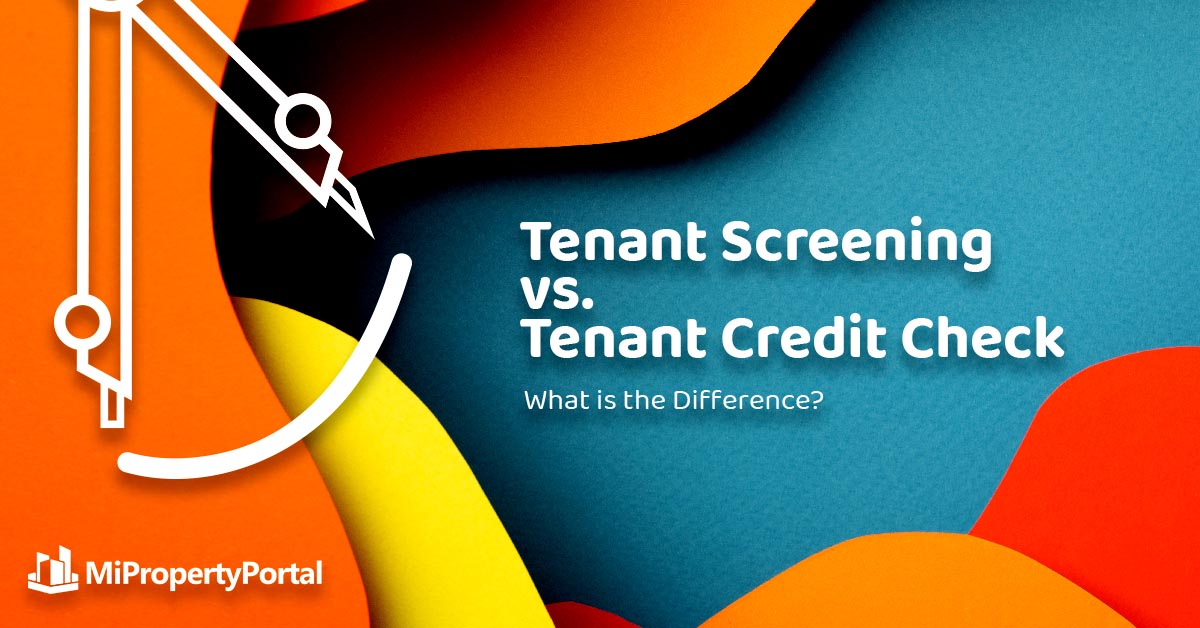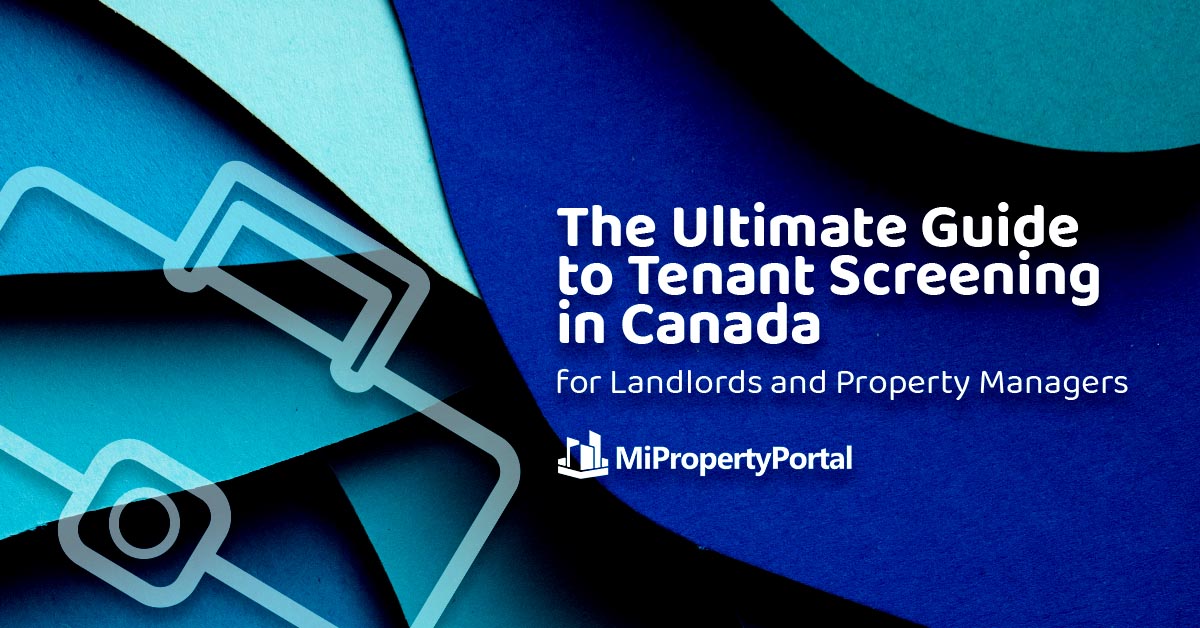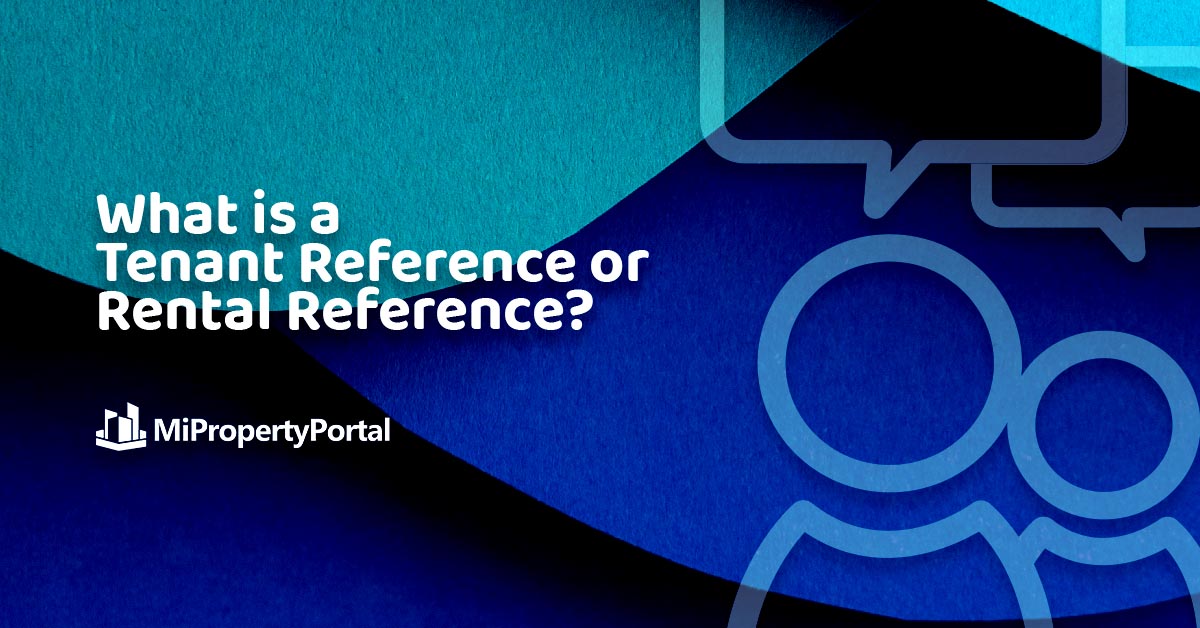Tenant Screening vs. Tenant Credit Check – What is the Difference?

Mi Property Portal
October 23, 2023 - 12 min read
Tenant Screening, also known as Tenant Background Check or Rental Background Check, is an important measure for Canadian Landlords and Property managers to select the best potential tenant with facts and figures.
Tenant Credit Check is on the other hand provides the financial information of an individual.
A landlord’s worst nightmare is an unreliable tenant who makes late payments, fails to maintain their properties or causes disturbances to their neighbours. A comprehensive tenant screening checklist will enable you to filter out these kinds of renters from the beginning. In this article, we will learn all about Tenant Screening and Tenant Credit Checks in Canada and the key differences.
What is Tenant Screening or Tenant Background Check?
Tenant Screening or Tenant Background Check or Rental Background Check involves investigating an applicant’s personal history, criminal record such as sex offence, and rental history. This information can provide valuable insights regarding a tenant’s character, reliability, and previous rental experiences.
You can learn more in-depth about Tenant Screening by clicking here.
What Information can I get from the Tenant Background Check?
A tenant background check focuses on a tenant’s personal history and generally includes the following:
Criminal History
This check looks into the tenant’s criminal record, including any convictions or pending charges.
Rental History
Landlords can contact previous landlords to verify the tenant’s rental history, including whether they paid rent on time and maintained the property in good condition.
Employment and Income Verification
Does the tenant have a stable source of income to cover the rent?
References
Collecting personal and professional references can provide insights into the tenant’s character and reliability. You can learn more about Rental References by clicking here.
Eviction History
Checking if the tenant has a history of being evicted from previous rentals.
Identification Verification
Verifying the tenant’s identity to prevent fraud or identity theft. Tenant background checks help landlords make informed decisions about a tenant’s suitability and reliability.
The Importance of Rental Background Checks
The primary goal of these checks is to verify a tenant’s past rental history, which includes previous rental addresses, payment history, and any reported issues or conflicts. Here’s why these checks are important:
Ensuring a Safe and Reliable Tenant
One of the primary reasons landlords conduct background checks is to ensure the safety and security of their property. By examining a potential tenant’s history, they can identify any red flags or concerns that might affect the property or other tenants.
Protecting the Property
Landlords invest a significant amount in their properties, and they want to protect their assets. Rental background checks can help landlords gauge whether tenants will likely take good care of the property and meet their financial obligations.
Preventing Future Issues
By reviewing a tenant’s past rental history, landlords can anticipate potential issues and conflicts. This can help prevent problems down the road, such as unpaid rent or property damage.
What is a Tenant Credit Check or Rental Credit Check?
Tenant Credit Checks or Rental Credit Checks focus on an individual’s financial history and creditworthiness. Here’s why rental credit checks are important:
Assessing Financial Responsibility
Rental credit checks help landlords evaluate a tenant’s financial responsibility. This includes their credit score, outstanding debts, and payment history.
Determining Rental Eligibility
Many landlords require a certain credit score for prospective tenants to be eligible to rent their properties. A high credit score demonstrates a tenant’s ability to meet financial obligations.
Mitigating Risk
Landlords can reduce the risk of unpaid rent or property damage by reviewing a tenant’s credit history, this is especially important for landlords who rely on rental income to cover their expenses.
Mitigating Risk
Landlords can reduce the risk of unpaid rent or property damage by reviewing a tenant’s credit history, this is especially important for landlords who rely on rental income to cover their expenses.
What Information do I get from a Tenant Credit Check?
1. Credit History
It is a detailed record of an individual’s ability to manage finances and repay debts. This indicates whether applicants pay their bills on time and how they handle their financial obligations. Landlords want to know about the number of credit cards an applicant has, how they use them, and the amount of debt they carry.
2. Credit Score
It is an individual’s creditworthiness and provides insight into how financially responsible an applicant is. Higher scores indicate greater financial responsibility and trustworthiness. A good credit score for renting is typically above 660, which reflects financial reliability.
3. Debt
The amount of debt an applicant carries is a significant consideration for landlords. Excessive debt, especially consumer debt like credit card balances, can raise concerns. High debt levels suggest an inability to prioritize rent payments if there is any problem.
4. Derogatory Marks
Derogatory marks on a credit report are red flags for landlords. These marks include late payments, loan defaults, bankruptcy, and other negative financial events. Landlords may hesitate to lease to applicants with derogatory marks, as they indicate a history of financial troubles.
5. Vehicle Repossession
6. Credit Counselling Program
When to pull a Tenant Background Check or Rental Credit Check?
Landlords usually pull a Tenant Background Check or Rental Credit Check upon the approval of the potential tenant. The consent form has to be given, filled up and signed along with the Rental Application by the prospective tenant.
Things to Consider Before Doing a Tenant Background Check in Canada
All applicants must give permission before property managers or landlords can run background checks, contact the applicant’s former landlord or obtain Canadian credit reports from a credit reporting company. It’s good practice to let applicants know what information is needed when someone requests an application.
As a result, landlords must provide consent forms that must be signed on paper along with the rental application.
Questions To Include on The Rental Application
Here’s a comprehensive list of tenant screening questions to include on a rental application in Canada, taking into consideration the need for consent and the location:
Basic Information
- Full Name
- Date of Birth
- Current Residential Address
- Employment and Financial Information:
Current Employment Status
- Employment History (Previous Jobs)
- Sources of Income
- Monthly Income (Gross)
Residential History
- Previous Addresses (last 3-5 years)
- Reason for Leaving Each Previous Address
Pet Information
- Do you have any pets?
- If yes, please list each pet’s type, size, and breed.
Note: Pet-related questions may vary by province, so comply with local regulations. In British Columbia, asking about pets is generally acceptable.References:
Landlord References (Previous Landlords)
Credit References
Personal References (optional)
Smoking and Vaping
Do you or any potential occupants smoke or vape?
Note: Some provinces may restrict smoking in rental units to make this question relevant.
Other Occupants
List the names and relationships of all individuals living with you.
Financial History
- Have you ever filed for bankruptcy?
- If yes, please provide the reason for the bankruptcy.
Consent for Background Check
Do you consent to a background check?
This question is important for obtaining permission to perform a background check on the applicant.
Consent for Credit Check
Do you consent to a credit check?
This question is crucial for obtaining permission to pull the applicant’s credit report.
Remember that it’s essential to include a signature section where the applicant acknowledges and provides consent for credit and background checks. Consent forms should be delivered in print along with the application, and compliance with privacy laws is of utmost importance,
Also, be aware that tenant screening laws and regulations can vary between provinces, so it’s a good idea to consult with local authorities or legal experts to ensure your application aligns with regional requirements.
Questions Landlords Might Ask Before Screening?
The following basic questions a landlord might also ask the potential tenant before doing tenant screening:
- What is your current address and the duration of the rental?
- When would you like to move in?
- How many people are you going to live with?
- Do you or any of your roommates vape or smoke?
- What length of time do you want to sign a lease?
- Tell me about your employment, please.
- Have you served a notice to your present landlord, or have you been served one, and why?
- Why did you decide to move?
- Do you own any pets? In such case, what kind and how many?
- Where did you find this vacancy notice?
- Can you offer references?
- Do you agree to provide a background and/or credit report?
Questions to Avoid on an Application for Tenant Screening in Canada
Here are some questions to avoid:
- What is your race?
- What are your religious beliefs?
- What is your sexual orientation?
- Landlords and Property Managers cannot ask questions regarding marital status or children.
MiPropertyPortal: Your Ultimate Tenant Screening Solution
MiPropertyPortal (MIPP) is a Canadian Property Management software exclusively built for Canadian Landlords and Property Managers. It has many features, and one of the exclusive ones is Tenant Screening. Moreover, you are offered a lot of other features, such as Online Rent Collection and Online Vacant Property Listing, etc. from MIPP for efficient property management.
MIPropertyPortal Tenant Screening Report includes a comprehensive tenant background report along with full detail credit report from Equifax.
Also, for MiPropertyPortal users, there is a discount of $2 for each successful Tenant Screening and Tenant Background Check Report.
Canadian Human Rights Act and Canada’s Privacy Act
As important as rental background checks and rental credit checks are, it’s essential to consider how these practices align with the Canadian Human Rights Act and Canadian Privacy Act. These laws protect individuals from discrimination and invasion of privacy.
Here’s how they relate to Rental Background Checks:
Non-Discrimination
Canadian Human Rights Laws prohibit discrimination based on factors such as race, religion, gender, and disability. Landlords must ensure that their rental background checks and credit checks do not unfairly discriminate against potential tenants.
Privacy
Privacy is a fundamental right in Canada. Landlords must obtain consent from tenants before conducting background checks or credit checks, and they must handle the collected information with care to protect tenant privacy.
Transparency
Landlords are required to be transparent about their tenant screening process. They should provide potential tenants with information about the types of checks they conduct and how they will use the information.
Learn more about Canadian Privacy Laws by clicking here.
Residential Tenancies Act (RTA)
The RTA (2006) states that landlords cannot charge tenants for a background check, whether a credit check or other screening costs. Also, you can learn more about Tenant’s and Landlord’s Rights and Responsibilities in Ontario from here.
Wrapping Up
Tenant background checks offer insights into an applicant’s personal and rental history, while tenant credit checks focus on financial stability. Both methods have advantages and disadvantages, and the choice between them should be made according to the circumstances.
Tenant screening not only helps protect your investment but also fosters a harmonious rental community. When done in compliance with legal regulations, it ensures a fair and respectful process for both landlords and tenants.
If you’re a landlord in Canada, remember to stay informed about the legal requirements in your province and the specific needs of your rental property. Choose the tenant screening method that aligns with your goals, and you’ll be on your way to a successful and secure rental experience.
Be sure to check out MIPP’s comprehensive tenant screening services for a smooth leasing experience.
Frequently Asked Questions (FAQs)
You can use MiPropertyPortal’s Tenant Screening Services to check out the tenant’s background, including the Tenant’s Credit Score, employment history, rental history, etc.
Legal restrictions may vary by province, but generally, tenants have rights to privacy and fair treatment. Landlords need to be aware of the specific regulations in their region.
Yes, some landlords opt for alternative methods like rental references from previous landlords, interviews, or co-signers to assess a tenant's suitability.
Yes, tenant screening reports can be used as evidence in legal disputes, but it's vital to ensure that the screening process complies with legal guidelines.
Tenants can dispute inaccurate information in a screening report. Landlords are typically required to provide the applicant with a copy of the report and the opportunity to correct any errors.
Yes, even for short-term rentals, conducting tenant screenings can help protect your property and maintain a positive rental experience.
While tenants can refuse a credit check, landlords can decline their application based on this refusal.
Reputable screening services in Canada, such as MiPropertyPortal, are well-versed in privacy laws and ensure compliance when collecting and handling applicant data.
FICO (Fair Isaac Corporation) Score is a credit score measured using FICO’s exclusive scoring models to evaluate the creditworthiness of a person. In Canada, it usually ranges from 300 to 900.
There are two options - Electronic Identity Verification (EIV) and Physical Identity Verification. The EIV consists of questions deduced from the applicant’s credit history. Otherwise, a Physical Identity Verification is the only substitute if the applicant cannot perform the EIV.


